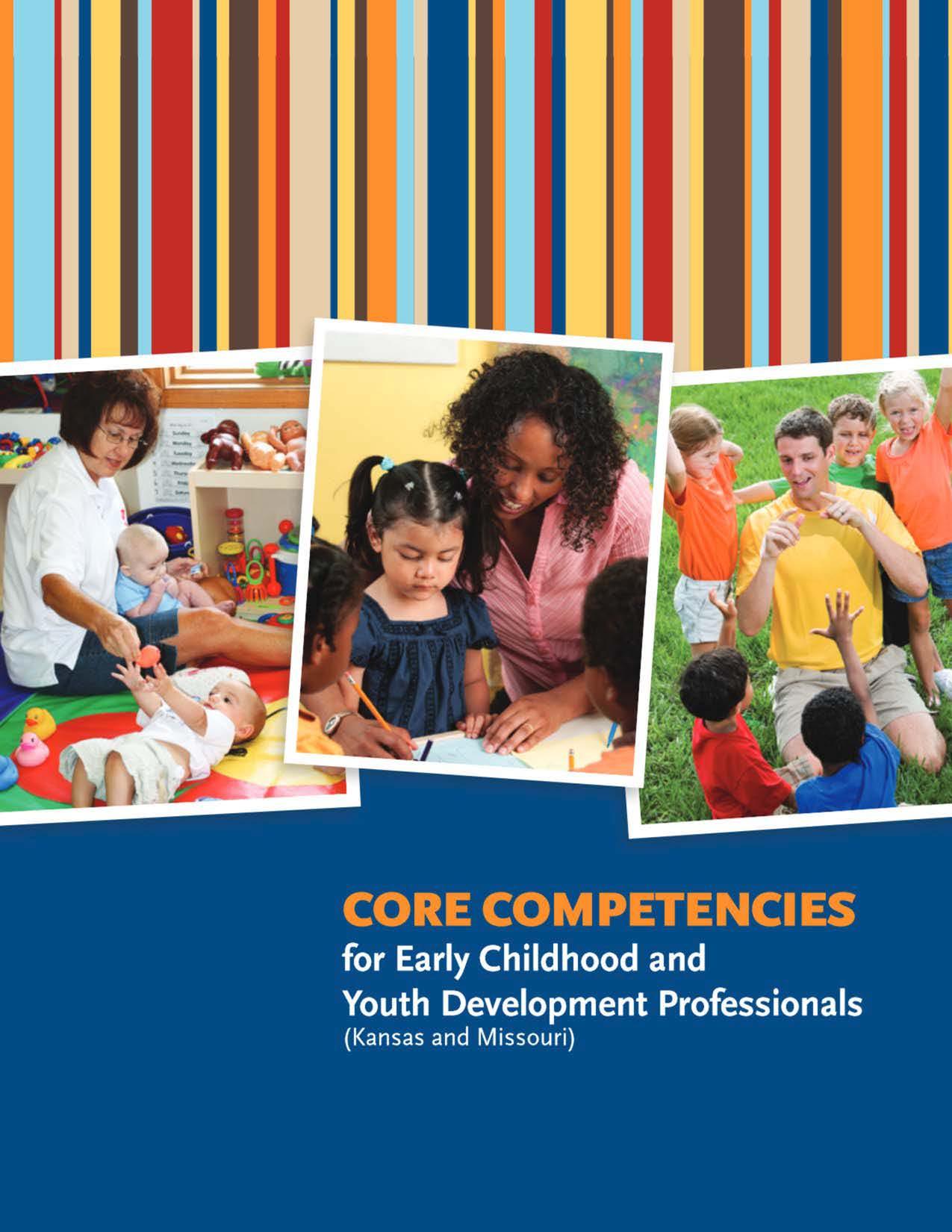


(Excerpts from the Core Competencies Book, 2011)
What are core competencies?
The Core Competencies for Early Childhood and Youth Development Professionals (Kansas and Missouri) is a framework that defines the standards for early childhood and youth development professionals. They set the expectations for professionals who care for infants, toddlers, preschoolers, school-age children, and older youth.
8 Content Areas
The Core Competencies are organized into eight Content Areas, each providing specific standards that help professionals learn to fully include children and youth with various ethnic, linguistic, and socio-economic backgrounds — as well as diverse needs and abilities.
I. Child and Youth Growth and Development
II. Learning Environment and Curriculum
III. Observation and Assessment
IV. Families and Communities
V. Health and Safety
VI. Interactions with Children and Youth
VII. Program Planning and Development
VIII. Professional Development and Leadership
5 Levels
Each Content Area is divided into five levels of skills. These levels outline the knowledge essential in providing quality programming, and establishing a continuum from preliminary skills (Level 1) to an advanced level of skills (Level 5). The five levels are intended to be cumulative — with knowledge and skills in one level required before moving to the next higher level. This development generally progresses from knowing and following, to planning and implementing, to eventually analyzing and evaluating program and practices. As professionals gain knowledge and skills through work experience and formal education/training, they will advance through the five levels in each Content Area. Depending on a professional’s role, setting, or experience—he or she may have skills at varying levels in different areas.
To learn more about the Core Competencies download the entire framework here.